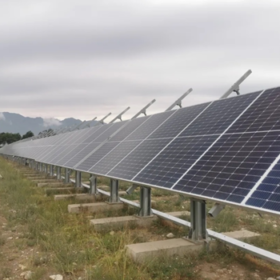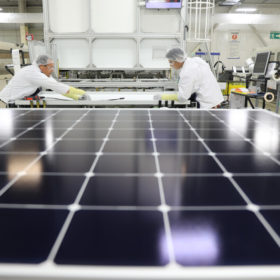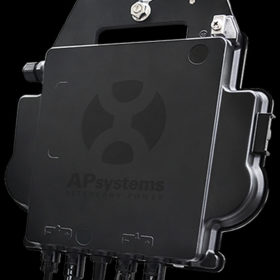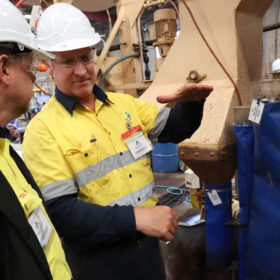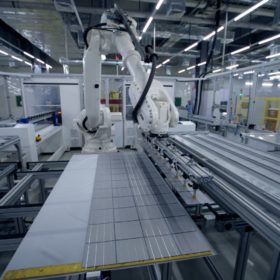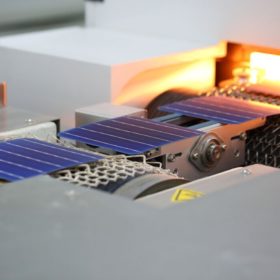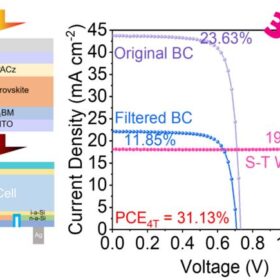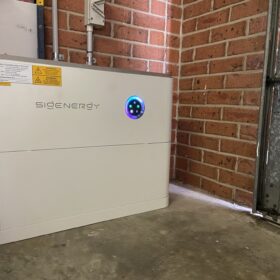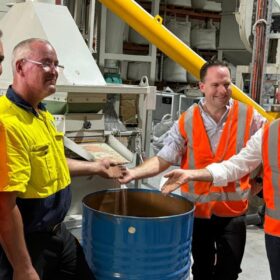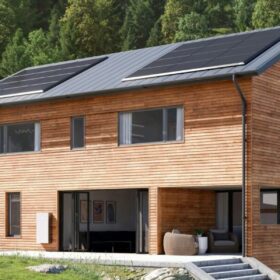New discovery could make organic PV competitive with crystalline silicon
A group of international researchers has observed how non-radiative charge recombination occurs in organic PV and claims to have identified a potential solution that could bring this solar tech closer to crystalline silicon in terms of power conversion efficiency.
Comparing new solar module formats
JA Solar published data comparing its own modules, based on the 182mm wafer format, with others utilising the larger 210mm size over a six month period in field testing. The data show that the smaller of the two formats reached an average daily energy yield almost 2% higher. According to JA Solar’s analysis, the higher currents produced by the 210mm modules led to higher resistance, and more energy lost as heat.
Sunday read: First Solar goes to India
First Solar has announced plans to establish a new 3.3 GW manufacturing facility in India. Representing an investment of US$684 million (AU$950 million), the move demonstrates the thin-film PV manufacturer’s confidence in India’s solar growth and the increasingly favourable policy environment for domestic solar PV production.
Industry veteran warns of looming supply chain disruption
Australia’s module supply landscape could experience a supply shock as legislation looms to stamp out the use of forced labor. Chris O’Brien, Maxeon Solar Technologies VP for the APAC region says that the measures that have left modules stranded at the U.S. border could very well occur in Australia soon.
APsystems reveals dual microinverter it claims to be most world’s most powerful
The 97%-efficient microinverter has a power output of up to 960 VA and APsystems claims it is the most powerful dual microinverter in the world.
China develops tech to detect module faults in all weather and lights
The system combines software that applies a modulated electric current to the PV panels and an indium-gallium-arsenide (InGaAs) photodiode detector that takes a sequence of images of the panels. According to its creators, the proposed technique works with any lighting conditions and in all weather.
Plans for Australia’s first vanadium electrolyte manufacturing facility move forward
Australian Vanadium Limited has appointed a Western Australian engineering firm to begin the stage one of what it says will become the country’s first vanadium electrolyte manufacturing plant, part of the company’s broader value adding vision.
First Solar CEO meets India’s prime minister
The Indian government has created a strong balance between industrial policy as well as trade policy, which provides companies like First Solar an ideal opportunity to establish their manufacturing facilities in India, according to First Solar chief executive officer Mark Widmar.
Adani, Reliance to set up solar gigafabs in India
Adani, Reliance New Energy, Jindal India Solar and Shirdi Sai Electricals have been put on a shortlist for India’s production-linked incentive scheme for high-efficiency PV module manufacturing. The list includes 14 other companies vying for the incentives.
Exclusive: Compelling UNSW research shows tandem cells should succeed PERC for multi-terawatt production
The urgent global need for tens of terawatts of solar capacity to replace fossil fuels by 2050 signals it’s time to hone in on developing the most sustainable technologies — before reserves of silver, indium and bismuth dry up.

